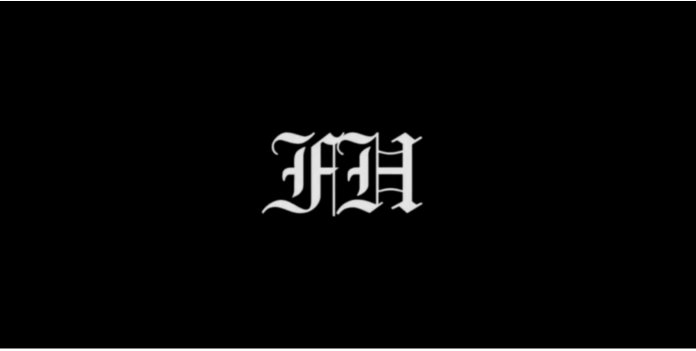Tuesday, April 18, the College of William and Mary’s Democracy Initiative hosted Phi Beta Kappa Secretary, CEO alumni Frederick Lawrence in Sadler Chesapeake BC. Lawrence spoke for an hour then answered questions from students and the academic community.
“I came to the talk because [professor Peter McHenry] recommended it,” Lara Nayar ’24 said. “I’m definitely interested in civil law and I wanted to come see what this respected scholar had to say about it.”
In Lawrence’s talk, titled “Liberal Arts and Democracy: The Essential Link,” he began with the story of PBK’s founding in a bar on December 5, 1776. That night, the now-honors fraternity came up with their mission statement, “Love of learning is the guide of life,” in which the members then committed themselves to a life-long pursuit of education.
PBK is an elite academic honor society for college seniors that requires a 3.9 GPA and has a 10% acceptance rate. The Alpha of the Virginia chapter of PBK at the College hand-picks each member and holds an initiation each semester. The society values freedom of thought and recognizes academic excellence.
Lawrences connected PBK’s early notions to the nation’s beginning, five months prior on July 4, 1776 when the founding fathers signed the Declaration of Independence and established a democracy that required “consent of the governed.” However, after clarifying that consent must always be continuous and informed, Lawrence questioned the practicality of this notion within modern American society.
He argued that an educated population is necessary for informed consent, but in 1776, only 3% of the population attended higher education. Lawrence noted that today, less than one-third of the population attends higher education.
“Through the beginning of the 19th-century, America began to build an educated population, in part because that is an essential lament of the consent of the governed,” he said. “So, I would claim that education is essential for multiple aspects of a functioning democracy.”
“We have access to raw information that was not imaginable even a decade or two ago. The trick is how do you turn raw information into knowledge? That is what the purpose of education is.”
In the information age, Lawrence believes education is necessary to distinguish fact from fiction and to prevent a “rationally-closed mind” that cannot imagine other possibilities.
“We have access to raw information that was not imaginable even a decade or two ago,” Lawrence said. “The trick is how do you turn raw information into knowledge? That is what the purpose of education is.”
Lawrence argued that a civic education is required for all in a fully-functioning democracy, and while he talked primarily about at the college-level, he asserted it must begin in elementary school. Lawrence explained that it is the responsibility of teachers to foster the instinctual moral intuition and open-mindness that children possess.
In higher education, he said, providing a civic education is the first of two core principles a professor must hold. The second principle is honesty in what is being taught. He also stated that a civic education means providing context to the laws and how they apply to our society rather than only memorizing them. Lawrence noted that debating and academic freedom of speech are also important as they give students the necessary tools to assess, analyze, question and freely think about their government for informed consent.
This distinctly American tradition of liberal education is not only necessary for democracies, but it’s essential for fostering a sustained engagement for free individuals committed to our shared values of justice, liberty, dignity and equality.”
Lawrence stated that a liberal arts institution, like the College, is what the American tradition of civic education is all about.
“This distinctly American tradition of liberal education is not only necessary for democracies, but it’s essential for fostering a sustained engagement for free individuals committed to our shared values of justice, liberty, dignity and equality,” Lawrence said.
Additionally, he said students with a liberal arts education are more likely to reject authoritarianism and maintain democracy, even in a turbulent social climate. Threats to the homefront, including the COVID-19 virus and racial tensions, can lead to a rise in authoritarian ideas for stability.
However, previous exposure to complexity and diversity through the liberal arts builds up a student’s self-esteem and autonomy that acts as “psychological protection” to the same threats. Exposure to broader social contexts and ways of life also builds empathy for others that makes societal changes less likely to dismantle an individual and looks towards authoritarianism.
Currently, America ranks 16th out of over 50 countries in citizen concern with authoritarian ideals. Lawrence mentioned that countries who ranked above the United States likely have better civic education before the college-level. However, PBK is only involved with promoting these democratic values in higher education.
Lawrence noted that the cultural lack of respect for teachers, and their position in society, is also to blame and makes America less likely to become less authoritarian anytime soon.
Even so, for many students, including newly-initiated PBK members, Lawrence’s appearance meant a lot.
“I was so excited when I heard that Fred Lawrence was coming to campus,” Abby Varricchio ’23 said. “Hearing Fred speak about the value of education and especially the value of liberal arts as a William and Mary student in context of that life goal was just wonderful.”

